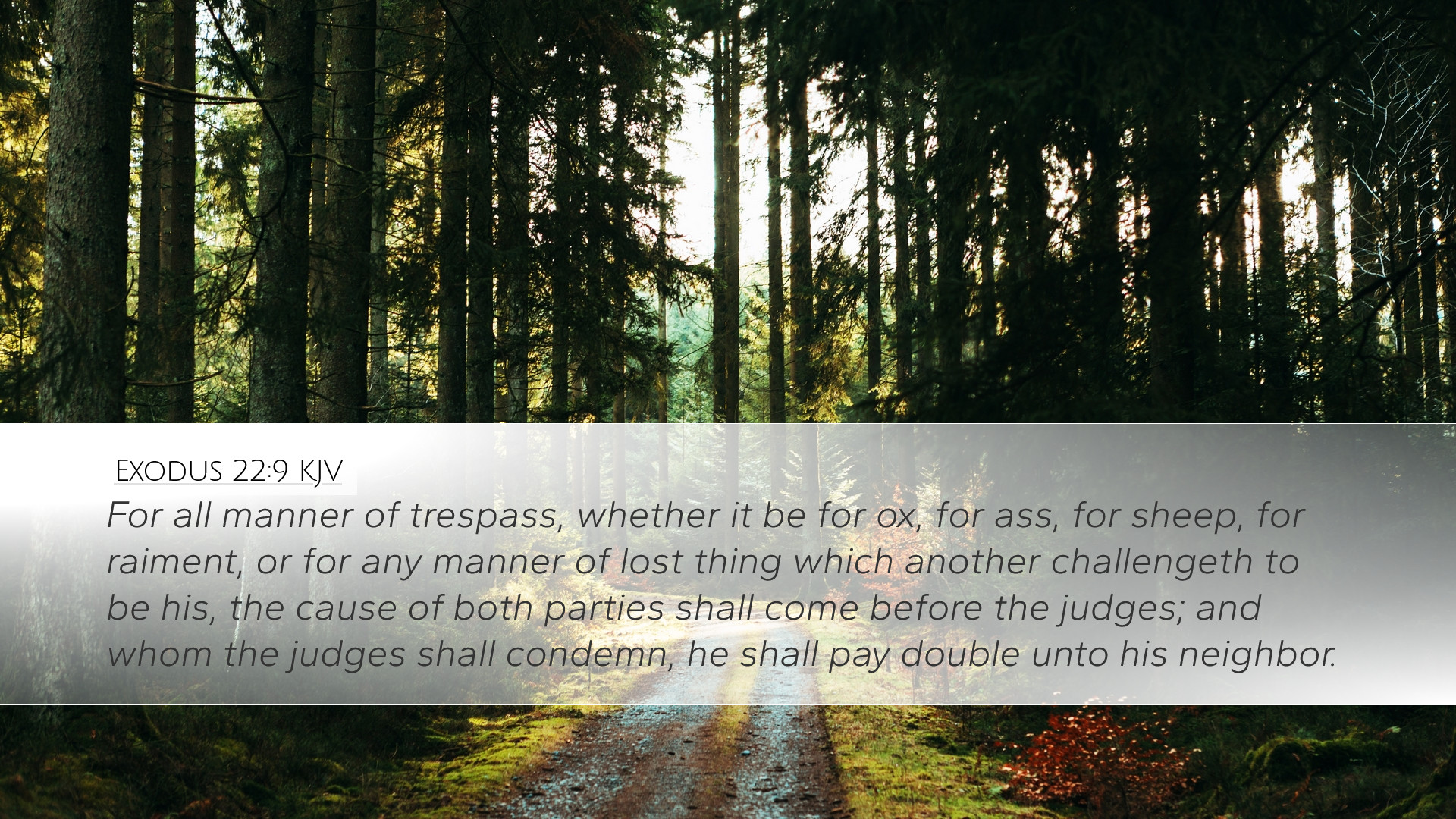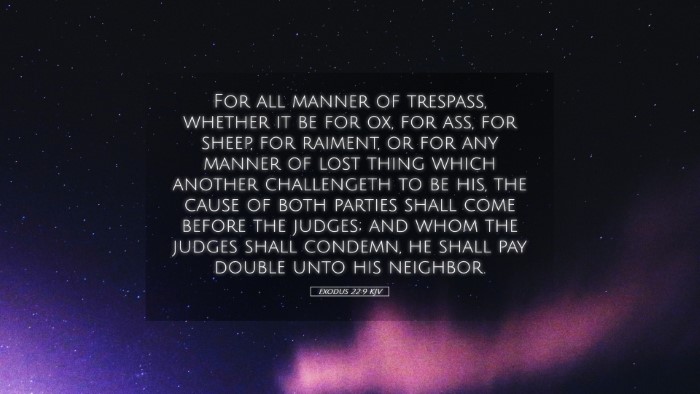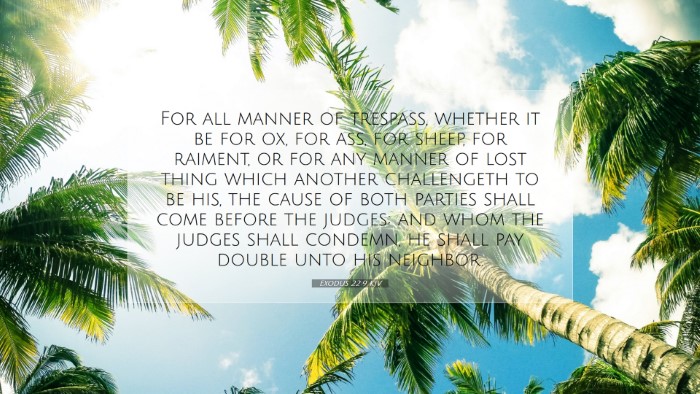Exodus 22:9 - Commentary Summary
Bible Verse: “For all manner of trespass, whether it be for ox, for ass, for sheep, for raiment, or for any manner of lost thing, which another challengeth to be his, the cause of both parties shall come before the judges; and whom the judges shall condemn, he shall pay double unto his neighbour.”
Context and Overview
The broader context of Exodus 22 involves laws concerning personal property and justice. This verse emphasizes the necessity of lawful judgments regarding disputes over property.
Commentary Insights
Matthew Henry's Commentary
Matthew Henry suggests that this verse reflects the importance of justice in disputes. It emphasizes that any claim over property must be substantiated and that judges are responsible for making equitable decisions. Henry stresses the moral obligation to treat others fairly in property matters to maintain social harmony.
He elaborates on the significance of the "double payment" mentioned, underscoring that this serves not only as a penalty for wrongdoing but also as a deterrent against dishonest claims. The concept of restitution highlights God's concern for justice and the well-being of the community.
Albert Barnes' Commentary
Albert Barnes provides further elucidation by noting that the verse summarizes a legal principle that extends across various classes of property. He points out that whether the disputed item is an animal or clothing, the principle of jurisdiction remains consistent. Barnes emphasizes that the judicial process outlined is designed to protect property rights and ensure fair adjudication.
Moreover, Barnes notes that the judicial system was divinely inspired and meant to reflect God’s justice. The idea of bringing both parties to the judges ensures that both viewpoints are considered, thus fostering a system grounded in fairness and equity.
Adam Clarke's Commentary
Adam Clarke highlights the character of the judges as crucial figures in these disputes. He argues that their integrity and wisdom determine the fate of the parties involved. Clarke underscores that the judges' role is not simply mechanical; they are to discern the truth carefully and balance compassion with justice.
Clarke also draws attention to the social implications of unresolved disputes, suggesting that they can lead to broader community strife. The directive to pay double reinforces the seriousness of violating another's rights and aims to promote a culture of accountability.
Theological Implications
This verse offers deep theological insights into God's nature as just and fair. It stresses the importance of human accountability before divine law and underscores the need for an orderly society manifested in sound legal processes.
The explicit mention of diverse items subject to claims indicates God's concern for all aspects of life, calling believers to honor property rights. This parallels New Testament teachings where restitution and integrity are foundational to the Christian ethical framework.
Practical Applications
- Emphasis on Justice: Both pastors and scholars should advocate for justice in all dealings, echoing the biblical mandate.
- Integrity in Leadership: Leaders are called to be discerning and fair, mirroring the qualities of the judges from the text.
- Community Responsibility: Believers are encouraged to serve as examples of accountability, ensuring disputes are handled with care and respect.
Conclusion
Exodus 22:9 serves not only as a legal guideline but also frames a broader ethical narrative. It invites reflection on the nature of justice, integrity, and community well-being—principles that resonate deeply within the Christian faith and its teachings on how to interact with one another justly.


